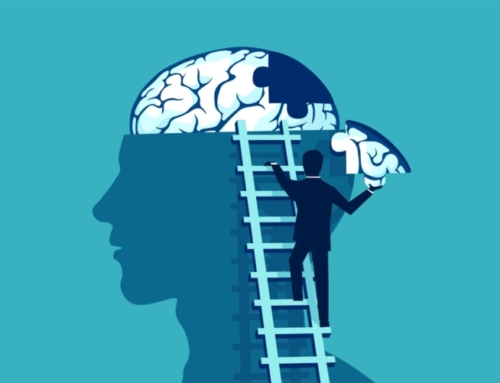Last week I wrote about a certain type of belief that can keep people stuck in whatever dissatisfying state they find themselves in. It may not necessarily be that they are living a terrible life, but rather that they are frustrated because of an inability to fulfill their dreams or presumed destiny. The belief I wrote about was that the outcome of one’s efforts is necessary to launch those efforts, but of course, the outcome isn’t available prior to those efforts and, thus, the solution remains unavailable.
What I was describing was a type of cognitive distortion. You may be familiar with cognitive distortions from cognitive therapy, which is presumed to work by identifying distorted cognitions and then challenging and altering them. However, the cognitive distortions listed in cognitive therapy were developed through studying and then treating depressed and anxious persons. But many people are stuck in unsatisfying ways of living that are not primarily due to a depressed or anxious state. So, the list of cognitive distortions in CBT may not be of the greatest relevance to many people feeling stuck.
So, I present a series of additional cognitions that I find are counterproductive. I don’t like to refer to them as distortions because that presumes there is a neutral all-knowing point of reference from which to judge the validity of thoughts and beliefs. And, on a more practical (rather than a philosophic) plane, depressed persons have been found to often hold more realistic self-assessments of their performance and of the risk levels of various scenarios.
Counterproductive Cognitions Contributing to Stuckness
All of these unhelpful cognitions are types of a belief I’m calling (for now) “The Result as Prerequisite,” meaning that a person believes (explicitly or implicitly) that the result of their efforts is a prerequisite for their efforts. This is a different way of stating what I wrote about last week. Here are some versions that come to mind.
- Outcome Resource as Prerequisite: The examples from last week apply here: “To become a professional writer I need to make money from writing professionally to have the time to write.” And: “To start this awesome business and make millions of dollars, I need a million dollars to launch it.”
- Competence as Prerequisite: In this version, the person is unwilling to try something new because they are not knowledgeable or skilled in this new activity. Statements that exemplify this are: “I’m not going to take an art class because I’m no good at art.”
- Invitation as Prerequisite: In this belief, a person avoids or doesn’t even consider starting a new activity or project because no one invited them to do it. My common (and somewhat snarky) retort is, “If you’re waiting for the queen of England to knight you ‘Sir’ or ‘Madam,’ then you’ll die waiting.
So, what are more helpful cognitions? Here’s my own (somewhat repetitive) list.
- I have to accept my ignorance first so I can gradually acquire knowledge.
- I have to suck first so I can gradually develop the competence to no longer suck.
- I can choose to engage in personal activities or projects without other people’s permission or invitation. Success is not assured. Failure is likely. But it will be an adventure.
- I must engage in action learning. Only through moving through the world and engaging it, will I learn what I don’t know (the known unknown) and what I don’t know that I don’t know (the unknown unknown).
- Only through activity, will I become more skilled at that chosen activity and at perceiving things in the world and in myself that will more skillfully guide my activity – skilled perception leads to skilled action and skilled action leads to skilled perception.
- Achieving lasting positive life change entails changing the circumstances of my life, the habits I engage in, the types of conversations I have, the situations I place myself into, and the ones I avoid placing myself into.
- Change is an iterative process of incremental changes that can lead to virtuous cycles of positive change.
Let me know what thoughts and beliefs you hold or have held that were not helpful and others that were. How do you manage yourself to be successful? To achieve lasting positive change?
Until next time,
LanguageBrief
“Life is either a daring adventure or nothing at all.” ― Helen Keller
“Don’t be too timid and squeamish about your actions. All life is an experiment. The more experiments you make the better.” ― Ralph Waldo Emerson
“Throw your dreams into space like a kite, and you do not know what it will bring back, a new life, a new friend, a new love, a new country.” ― Anais Nin
“Much of what we call emotion is nothing more or less than a certain kind – a biased, prejudiced, or strongly evaluative kind – of thought.” ― Albert Ellis
“Stop it, and give yourself a chance.” ― Aaron T. Beck







Leave A Comment